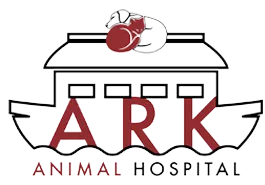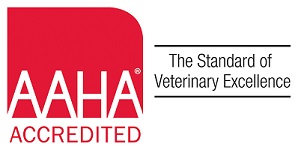
Let’s Talk about Coughing!
Canine Infectious Respiratory Disease
Author: Nurse Sara
So…
You just got back from a beautiful vacation with your family. After a long and exhausting flight, you return home and joyfully pick up your doggy that you have missed so much from the boarding facility. You have finally made it home and dreadfully start unpacking your overstuffed suitcase when your four-legged friend excitedly comes up to greet you and starts coughing all over your vacation souvenirs.
This is a scenario we have heard all too many times! The good news is we do have many options to reduce your dog’s chances of contracting a canine infectious respiratory disease (CIRD), and more importantly, what you should do about the dreaded “cough”.
What is CIRD?
Canine infectious respiratory disease (CIRD), also known as “kennel cough”, is a highly contagious respiratory diseases in dogs. Oftentimes, these infections have both viral and/or bacterial properties. The symptoms will vary from dog to dog depending on which pathogen or pathogens are involved. It is commonly seen where dogs are in close contact with each other, such as boarding facilities, doggie daycares, rescue centers, dog parks or grooming facilities. Although, CIRD can also occur in dogs with no history of having ever been in such a situation or place.
The Symptoms
Since a variety of pathogens can cause CIRD, there is no definitive list of symptoms. Dogs with CIRD may exhibit one or multiple of the following symptoms:
Persistent coughing (usually a dry, honking cough)
Cough that produces white, foamy phlegm
Nasal congestion and/or discharge
Sensitive trachea (coughs when you touch his throat)
Sneezing
Runny eyes
Difficulty breathing
Lethargy
Loss of appetite
Mild fever
Since dogs with CIRD share very similar symptoms, getting a specific diagnosis would require additional testing be sent to an outside laboratory to identify the agent(s) responsible for your dog’s infection.
Most dogs will develops symptoms 5-10 days after exposure to an infected dog or infected surface.
You should contact us to schedule an appointment if you believe your dog is having any of the above symptoms, especially after being in a situation where they are at increased risk.
How is CIRD Spread?
It is important to know that any time your dog comes into contact with other dogs they are at increased risk of contracting a canine infectious respiratory disease.
The most common way these pathogens are spread are:
- Direct dog-to-dog contact
- Objects contaminated with respiratory secretions of infected dogs
- Through the air (coughing/sneezing of infected dogs)
A single cough or sneeze from an infected dog can propel pathogens through the air greater than 20 feet away!
While CIRD can’t be transmitted to humans or other household pets such as cats, humans can spread the disease by harboring secretions on their clothing or hands from dog to dog. Some pathogens can live on fabrics for 24 hours and on hard surfaces for 48 hours.
Preventing and Protecting
Typically, dogs that have been diagnosed with CIRD will remain contagious for about 1-2 weeks after diagnosis. Most of the bacteria and viruses associated with CIRD are shed in respiratory secretions for 7 to 14 days.
The most common cases of CIRD are treated with antibiotics and sometimes, cough suppressants. Make sure your fur baby gets plenty of rest during recovery and try to minimize situations that would elicit coughing such as exercise, using neck leashes, and overexcitement. After your dog has been diagnosed with an upper respiratory infection -- It is SO important you isolate them from other dogs until your Veterinarian determines they are no longer contagious.
The best protection against CIRD is prevention aka vaccination! There is no “cure-all” vaccine to prevent CIRD, but luckily we can vaccinate your puppies and doggies for the most common offenders and in some cases, disease can be entirely prevented.
At Ark Animal Hospital we recommend vaccinating against the following canine respiratory diseases:
Distemper
Adenovirus
Canine Influenza
Parainfluenza
Bordetella bronchiseptica
As with any vaccination, there is always a chance that your dog may still develop an upper respiratory disease despite being up-to-date on all recommended vaccinations. While vaccines might not prevent all cases, they can drastically minimize the severity of the disease and symptoms. It is recommended that all dogs being boarding, traveling, or coming into ANY contact with other dogs be vaccinated annually.
Although CIRD is the most common infectious respiratory syndrome of dogs, it is readily treatable, and frequently preventable! Please call us for more information on how to prevent CIRD or to schedule a vaccination appointment for your dog today.
Works Cited:
https://www.zoetisus.com/products/dogs/bronchicine/pdf/cird_technical_bulletin.pdf



